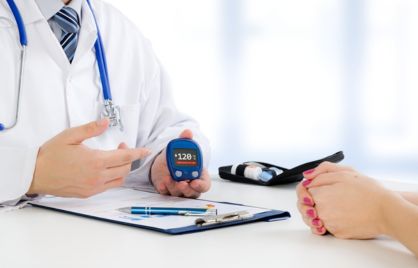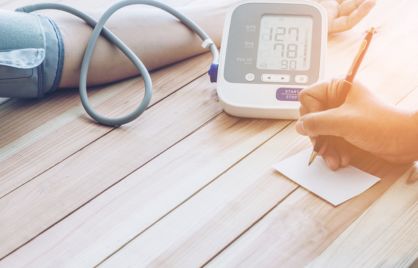4th April 2024
Blood screening results and cardiovascular disease: what you should know about lesser-known numbers
When you receive the results of your blood test, it is easy to focus on the familiar numbers while overlooking those less-known to us that might carry significant information about our heart health and the potential risk of developing cardiovascular disease. Although a simple blood test does not have the standalone ability to decide the risk of heart disease, certain markers can be the driving force behind further tests, diagnosis, and treatment.
.jpg?sfvrsn=b8268366_1)
Cholesterol
The word ‘cholesterol’, for many people, carries with it a negative connotation, oftentimes associated with poor diet and potential heart problems.
But what is cholesterol exactly and what can you learn from it? In simple terms, cholesterol is a type of fat found in your blood and it is needed for your cells and to aid the production of certain hormones. There are two types of cholesterol, known as “good” cholesterol and “bad” cholesterol.
- Good cholesterol, also known as high density lipoprotein (HDL), carries the cholesterol left behind in your arteries to your liver, where it is broken down and discarded from your body. Regular physical activity can help increase your HDL levels.
- Bad cholesterol, also known as low density lipoprotein (LDL), travels from your liver through the arteries to other parts of the body, sticking to the arteries along the way. This in turn can lead to a narrowing of the arteries, increasing the risk of developing cardiovascular disease.
- Triglyceride is another type of fat in our blood. It is affected by what we consume and can also lead to the narrowing of heart arteries. They can be raised if you have diabetes mellitus (type 1 and type 2), obesity, kidney disease, underactive thyroid or consume too much alcohol.
The target range for LDL is dependent on your cardiovascular risk, as assessed by your doctor. The LDL target for individuals considered to be at low cardiovascular is <3.0mmol/L. The target LDL for individuals considered to be at very high cardiovascular risk is <1.4mmol/L. The normal range for triglycerides is <1.7mmol/L.
Although lifestyle factors contribute significantly to elevated lipid levels, genetic or inherited lipid disorders are also highly prevalent.
Lipoprotein(a)
Lipoprotein, also known as Lp(a), is produced by the liver and it is made up of fats and protein. The protein is “sticky” and as it passes through the arteries, it clogs them up at a faster rate than bad cholesterol (LDL). The presence of lipoprotein is passed on genetically or may be caused by some underlying conditions.
Lipoprotein(a) is not included in a routine cholesterol blood panel. This blood test is usually requested by specialists in lipidology and cardiovascular risk. A lipoprotein(a) level >180 mg/dL is associated with an increased lifetime risk of cardiovascular disease.
Urgent Cardiac Care
Mater Private Network offers Ireland’s only private 24/7 service for patients experiencing urgent cardiac symptoms. If you have any symptoms or are worried about your heart, you can call the Urgent Cardiac Care Team at Mater Private Network.
Learn more.jpg?sfvrsn=f0a336c4_0)
Haemoglobin
Haemoglobin is the iron-rich protein found in red blood cells that carries oxygen around the body. Blood test results of haemoglobin levels can provide an overview of your general health and may show signs of:
- Iron or B12 deficiency anaemia
- Infection or inflammation
- Bleeding or clotting disorders
If your haemoglobin levels are low, this means that your blood cannot carry the necessary amount of oxygen around your body. This in turn causes your heart to work “overtime” as it tries to get the oxygen to where it needs to go. The normal range for haemoglobin is 13.0-18.0 g/dL.
Creatinine
Creatinine is created when your body digests protein. If your kidneys perform well, creatinine is filtered out from the blood and discarded during urination. However, if creatinine is detected in your blood, this is an indicator that the kidneys are not functioning well.
The normal range for creatinine is 59-104 µmol/L.
Creatinine levels provide information about kidney function. Usually, elevated blood levels of creatinine are reflective of kidney dysfunction or kidney failure, however some individuals with increased muscle mass may have a slightly elevated creatine level. Creatinine levels are important to know in cardiovascular care as many cardiovascular medications require dose adjustment in the setting of kidney dysfunction.
The above article was reviewed by Dr. Rory Durand, Cardiology Fellow at the Cardiovascular Research Institute (CVRI) in Dublin.













